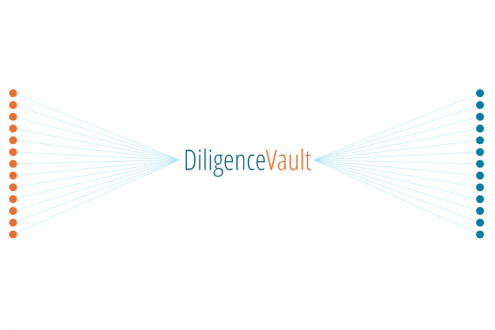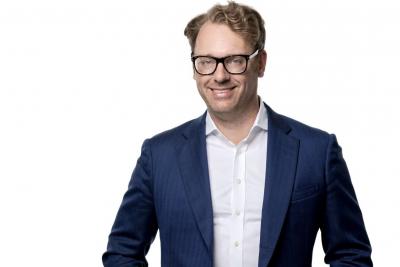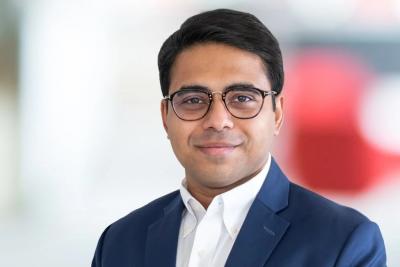Digital Platform DiligenceVault on the Need to Drive Fund Due Diligence into the Modern World

May 27, 2021
DiligenceVault is a digital diligence platform that was created to transform fund due diligence, enabling the industry to transition from a document-driven process to data-driven decision making. The FinTech was founded in 2014 by CEO Monel Amin. Before founding DiligenceVault, Monel was Head of Liquid Investments, Alternative Assets & Investments Risk at Citi in New York. The premise for the creation of the firm was that investment management information exchange and centralisation is burdensome and cost and time savings, and the reduction of unnecessary steps with more efficient and streamlined processes must be advantageous and therefore valuable to both the asset managers and to the end investors across wealth management and institutional investing. The company launched its technology platform in 2016 and received strategic minority investment from Goldman Sachs Growth Equity team in 2019. The business steadily built its user base before adoption exploded in 2020, when user numbers more than doubled. Hubbis met up with Monel and also Giulia Baiocchi, the Singapore-based APAC Director of Client Partnerships. They reveal the rationale that drove Monel to the initial creation of DiligenceVault, they explain how they offer their solutions both the asset manager as well as the gatekeepers and the end investors, and they elaborate on why they are so intent on building out both technology but also a more collaborative, faster, and more efficient due diligence ecosystem.
While working for nearly eight years at Citi in increasingly prominent roles in structured credit and asset and wealth management, Monel, who had begun her early working life in technology at US corporation Sprint, spotted a problem and set out to fix it. She saw in sharp focus how the due diligence process of exchanging information between allocators and managers was so manually intensive, administratively burdensome and definitely not fit for the modern world of digitised finance.
Together with her team of experts, Monel then created DiligenceVault in 2014, that has since become what she describes as the first two-sided digital diligence platform for investment managers, asset owners and allocators.
The scientific approach
“Simplistically,” she begins, “our solution sits between two diligence parties. There is due diligence in all aspects of our lives, even when we think about dating someone, or buying a house, for example. In the investment management world, the two parties exchange information and it had always been remarkably manual, repetitive, very heavy in terms of document exchange, emails back and forth, and so on. In the process a lot of knowledge was lost. What we did was create a technology platform that connects both these parties and creates a many-to-many diligence ecosystem. It digitises a huge amount of the initial information flow and also the ongoing monitoring, while enabling reusability for asset managers and building out a time-series of information for the gatekeepers and end-investors. So, one element of our solution is the technology, the other is building out the ecosystem.”
The company was established in New York in 2014 and began commercially signing up clients from early 2016, and now boasts a significant client base comprising many well-known financial institutions, asset managers including across traditional long-only, hedge, private markets, as well as service providers and other distributors.
Key Priorities
Monel explains that the first mission is to continue to invest in the ecosystem, which in terms of Asia is a two-way flow, wealth platforms in Asia directing money to global managers, and Western wealth platforms and investors looking for investment opportunities in Asia. “We want to support clients, especially in the global flow of capital where due diligence becomes even more protracted with time and distance gaps,” she explains. “We now have over 21,000 individual users spread all over the world, and behind them of course numerous investors, and the platform supports both, in our way oiling the flow of capital around the world.”
The second focus is to make offerings more ‘local’ in terms of technology, language support, understanding of the local characteristics, integrating with local providers, understanding different jurisdictional needs. “That is all about making our technology even more directly relevant to the different markets across different regions,” she explains.
And the third key mission is to tailor the product to different types of clients. “We can have different conversations with investors and asset managers, with the private banks, other wealth channels and also include distributor due diligence,” she explains. “this means we encapsulate all types of different needs within the single platform in a consistent fashion.”
Asia - increasingly important
Giulia explains that Asia is growing space for the firm, which already counts sovereign wealth funds, pension funds, asset consultants and others across APAC as clients. “Singapore is an ideal base through which to consolidate our reach across markets from Hong Kong, to Taiwan, South Korea, Japan, Australia and New Zealand” she reports. “We opened in 2020, and we are now three in the team here, and we will build as we see plenty of organic growth taking place ahead.”
Monel adds that the firm is already working with two global wealth management banking brands that have a significant presence in Asia and that such clients make natural targets for expansion of the customer base.
A wealth of opportunity in Asia
They continue the conversation by refocusing on the firm’s drive deeper into the wealth sector and into Asia. “The wealth market offers an increasingly broad array of asset classes to meet the preferences and demands of a much wider client base,” Monel observes. “Historically, the market was more traditional types of investments, but nowadays alternatives play a bigger and growing role.” As a result, she reports that there is a growing need for greater oversight and greater care because both the volume is rising, and the complexity is increasing.
“As more and more wealth platforms are thinking about scaling and offering the best of breed products, they are building out diligence frameworks, they're building out their due diligence teams,” Giulia expounds. “And due to intensifying regulatory oversight, they have to make sure that whatever they build out is consistent, is auditable, and is repeatable.”
“Technology such as we offer is ideal in achieving better, faster access to data, and also in implementing a process which is consistent, that provides institutional memory, and that also helps the providers to underwrite a new product far more rapidly. It all boils down to speed, efficiency, scalability, and defensibility, and for those reasons, people are adopting DiligenceVault.”
Giulia also adds that from the APAC markets perspective, the private banks are keen on scaling up their volume in terms of the funds they offer, but of course, that takes time to process the necessary volume of quantitative and qualitative information required, at the same time as ensuring it is all coordinated in a compliant, auditable manner.
“Accordingly, we are having more and more conversations,” she reports, “and we see that their processes thus far have been very manual, such as to and fro’ with emails. This means their processes impede their ability to deliver at scale, which of course opens the door to us to help them revise and automate their processes to achieve scale, capacity to manage the data at volume and compliance.”
The proposition
Monel mines down further into the logic of the solution. She offers the example of a product gatekeeper in Asia selecting and monitoring asset managers or any product to be put on their platform, and therefore constantly collecting and compiling data about these asset managers, either directly from the asset managers or from some of the platforms. “So much of that information is embedded in PDF, Word, Excel or other formats,” she reports, “that it is all so very time consuming to centralise and to convert into a preferred format and therefore to use and compare that information efficiently.
That in turn means that it is incredibly difficult to scale and add more products to any platform, and that is the core problem for product gatekeepers. “But the DiligenceVault solution,” she continues, “allows the gatekeeper users to readily and rapidly make ‘apples to apples’ analysis, meaning the true value of all the data can be easily accessed and leveraged for the providers and the end investors.”
“How else can you scale? Traditionally, 10 diligences done means 10 customised emails sent, even without considering follow ups. On DiligenceVault, our users can send 10 diligences in 3-clicks, and monitor status instantaneously. Guess what happens at 50 diligences? Still 3-clicks.” Monel explained how the DiligenceVault platform can scale with your operations. “We also understand switching costs can be a hurdle; we minimise this through document parsers where you can simply parse a Word or Excel document and immediately start working on it. We focus on ease of implementation too, as we’re changing a traditional process, and build modern technology that keeps up with our imagination.”
A two-sided solution
Monel adds that for the asset managers, there is nowadays a huge burden on them to respond to individual requests from all types of parties, such as product gatekeepers, end investors and others.
“And that is why we set about solving these problems from both sides,” she explains. “Once an asset manager participates on DiligenceVault and provides the data directly into our platform, they create a reusable repository of diligence data, documents, and DDQs for future investor requests. They can also collaborate as a team in responding to inbound requests and automate their review workflows.”
Fast and accurate
Monel explains that users can also repurpose a lot of that information, they can autofill, they can search, they can all collaborate on the platform, they also have a robust audit trail of what they provided to whom. “The result is the speed of information flow increases for both parties, as well as the accuracy and usability,” she reports. “The overall cost for the ecosystem at large goes down, because now the parties are spending little time on dull, cumbersome, error-prone manual processes.”
Lines in the sand…
Moreover, Monel explains the platform does not stray into any conflict-of-interest areas, taking great care not to offer any opinions on funds or assets or managers, or any parties. “Our vision is to offer technological excellence that is the digital backbone of all forms of due diligence in the industry,” she states.
“Actually,” she reports, “asset consultants and due diligence consultants are our clients; they use our technology to power their research. Similarly, we are not a database, we complement investment databases like Morningstar, or eVestment, or Eurekahedge, or others, and we are soon to announce a partnership with one such database that also produces research so that it will be available on DiligenceVault.”
Seeing the big picture
Monel also addresses the trends, noting that in the past, it was largely the institutional market that demanded very in-depth and extensive due diligence, and it was less prominent in the wealth industry. “But both institutional and wealth dollars have the same value,” she says, “so the wealth management industry has just the same need for due diligence, product quality and suitability.”
She adds that there is at the same time a drive to complex and opaque alternative, private markets and ESG-themed investments, and gatekeepers therefore need the skills, the bandwidth and the scale to select out these products and offer the best to their clients. “It is tough to select best-in-class across all assets at the same time as true due diligence depth and all while complying with increasing regulatory scrutiny, so the impetus continues to build for technological solutions to help with due diligence.”
Independent and diverse
The company received strategic minority investment from Goldman Sachs Growth Equity team. “The minority investment ensures independence and focus on growth,” Monel explains. “Goldman Sachs was a lead institutional investor as they bought into the vision, and their wealth management and institutional business are also a client as they saw the applicability for their business model.”
She observes that independence is incredibly important because:
“We are more than a technology, we are creating a market solution, which can be used by every single investor selecting external managers, and by every single asset manager that's providing data to their investors throughout the investment lifecycle. We are therefore very careful to avoid conflicts of interest, so the investment is a minority stake, and that means we can build a market solution which is conflict-free.”
The DiligenceVault team today total 32 and comprises a mix of seasoned investment, FinTech and engineering professionals, with asset management, institutional investment and investment consulting experience at industry leaders including firms such as Bloomberg, Brookfield, Citigroup, eVestment, Goldman Sachs, Mitsubishi UFJ, NEPC, UBS, and other leading names.
The firm now has four offices, including New York, London, India, Singapore since 2020, where Giulia Baiocchi leads the Asian operation out of Singapore. She is a tech entrepreneur and finance professional who started her career at UBS Investment Bank in London, and was subsequently director of SaaS technology companies in APAC.
Excel and Apathy are the main competition
The final comments relate to competition. “It may sound a bit tongue in cheek, but Microsoft is the biggest competitor, as historically due diligence was delivered via Excel, Word, email, PDFs, SharePoint and so forth,” Monel reports. “We jokingly say that it is also apathy that's our second biggest competitor, as people just keep trying to make those dated solutions better, for example by adding analysts to manage the process and extract data, or creating their own branded portal, but we've differentiated ourselves by taking an ecosystem approach. That has helped us build the critical mass steadily, and we then reached our tipping point in 2020, when it all came together, all the hard work came good and we suddenly burst from close to 10000 users in 2019 to more than 21000 today, and building fast.”
Getting Personal with Monel Amin
Monel was born in Anand, in the state famous for entrepreneurs in India - Gujarat, where she was educated, and later earned her Master’s in Business Administration at Carnegie Mellon in the US. She began her career as a software engineer, and then completed her MBA and joined Citi, working in three different businesses, global wealth management, capital markets, and then asset management in both New York and Hong Kong.
“The early grounding in technology was critical,” she explains, “and then experienced first-hand some of the problems that we at DiligenceVault are solving today while I was at Citi, both as an asset manager as well as an allocator to our institutional and private banking business.”
As a first time entrepreneur from India and forging her way in the US, Monel has demonstrated enormous persistence and great bravery. “You need to have great patience when you start something like this,” she reports. “Both my parents have been entrepreneurs, and when I was leaving Citi to start DiligenceVault they told me to be prepared to give it at least 1000 days before giving up. In the age where startups become unicorns overnight, it did indeed take a lot of patience – it felt like forever actually - to get the initial traction, because most of the banks, asset managers, insurance companies and private banking platforms are wary of working with a new start-up, especially on delicate matters such as due diligence. But we were focused, we did not give up, and we won through in the end.”
Getting Personal with Giulia Baiocchi
Giulia hails from Rimini in Italy, and studied in Bocconi University in Milan, also attending the Chinese University of Hong Kong, as well as in Chile at the Adolfo Ibáñez University. After completing a Masters Degree in Finance, she joined UBS on sales and trading of structured products in London, spending almost five years there before moving into the technology space, creating her own companies initially, and later bringing Big Tech companies into Asia.
Married with a daughter of six months old, Giulia normally loves to travel and is looking forward to visiting home in Italy, where she has not been able to venture for too long. And within Asia, she is looking forward to a trip to Bali, to partake in her hobby of surfing, especially on the beaches of Uluwatu. “We used to travel like crazy before, Bali was like a second home, and we were there almost every other week before Covid hit us all,” she recalls with enthusiasm.
She is also looking forward to skiing again, perhaps in her favourite resort in the Italian Alps. And she was even a national level swimmer in her earlier years. “Sports run in my veins,” she says, “and I must say I really do miss the travels and the sports, but hopefully soon…”

Founder & CEO at DiligenceVault

More from Monel Amin, DiligenceVault
Latest Articles






